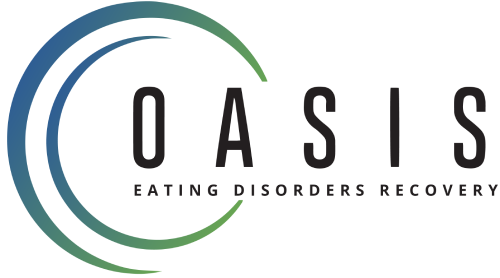An eating disorder is a mental health condition that involves disordered and distorted eating habits. It affects how a person behaves, thinks, and feels and can have a detrimental effect on their relationships, education, job, and overall health. These eating patterns cause disruption and distress.
When someone is struggling with an eating disorder, they may continue to engage in unhealthy behaviors in spite of the negative physical or mental effects. While the specific signs of eating disorders can vary, there are some general red flags to look out for.
1) Weight Alterations
Weight alterations can be a sign of an eating disorder. This includes significant weight loss or gain or rapid fluctuations in weight.
If someone is significantly below the expected weight for their age and height and has other symptoms of an eating disorder, such as extreme preoccupation with food and body size, they may be diagnosed with anorexia nervosa.
However, it is possible to have an eating disorder even if a person is at or close to their ideal body weight. This is common among those with bulimia nervosa, in which episodes of binging and purging occur.
2) Disruptions in Eating Patterns
Disruptions in eating patterns can also be a sign of an eating disorder. This includes skipping meals, having an irregular meal schedule, or only eating certain foods.
It can also include eating excessively large amounts of food in one sitting or binging and purging (eating and then vomiting or using laxatives to rid the body of the food).
It is important to note that these behaviors can also be signs of other mental health issues, such as depression or anxiety.
3) Obsession with Nutritional Content
Having a healthy diet is commendable, but if someone in your life starts to categorize food as either good or bad, healthy or unhealthy, or safe or unsafe, and focuses on organic and low-fat diet foods, visits websites about nutrition constantly, or declares that they are vegetarian or vegan, it could be a sign that they need help, especially if combined with other behaviors.
4) Obsession with Body Image
If someone in your life is constantly trying to change their body image by dieting, exercising excessively, or obsessing over how they look in the mirror, it could be a sign of an eating disorder. They might also be focusing more on their physical appearance than on their mental and emotional health.
Observing someone fixating on famous people or models, contrasting themselves with them negatively, or wearing clothing to obscure their body shape could be a sign of a potential eating disorder. If these behaviors persist, it could be a warning that professional help is needed.
5) Changes in Exercise Patterns
Exercise can be a healthy activity, but when it is done in an obsessive manner or when it is done to the exclusion of other activities, it could be a sign of an eating disorder.
If someone is exercising to the point of exhaustion and ignoring other important aspects of their life, then it is time to seek professional help.
Conclusion
It is important to be aware of the warning signs of eating disorders so that one can take the necessary steps to seek help. Eating disorders can have serious long-term consequences and can significantly impact one’s physical and mental health.
If you or anyone you know are exhibiting these signs, Oasis Eating Disorders Recovery can help. We are an eating disorder recovery center dedicated to helping people repair their relationship with nutrition and weight. Get in touch with us today to learn more.

